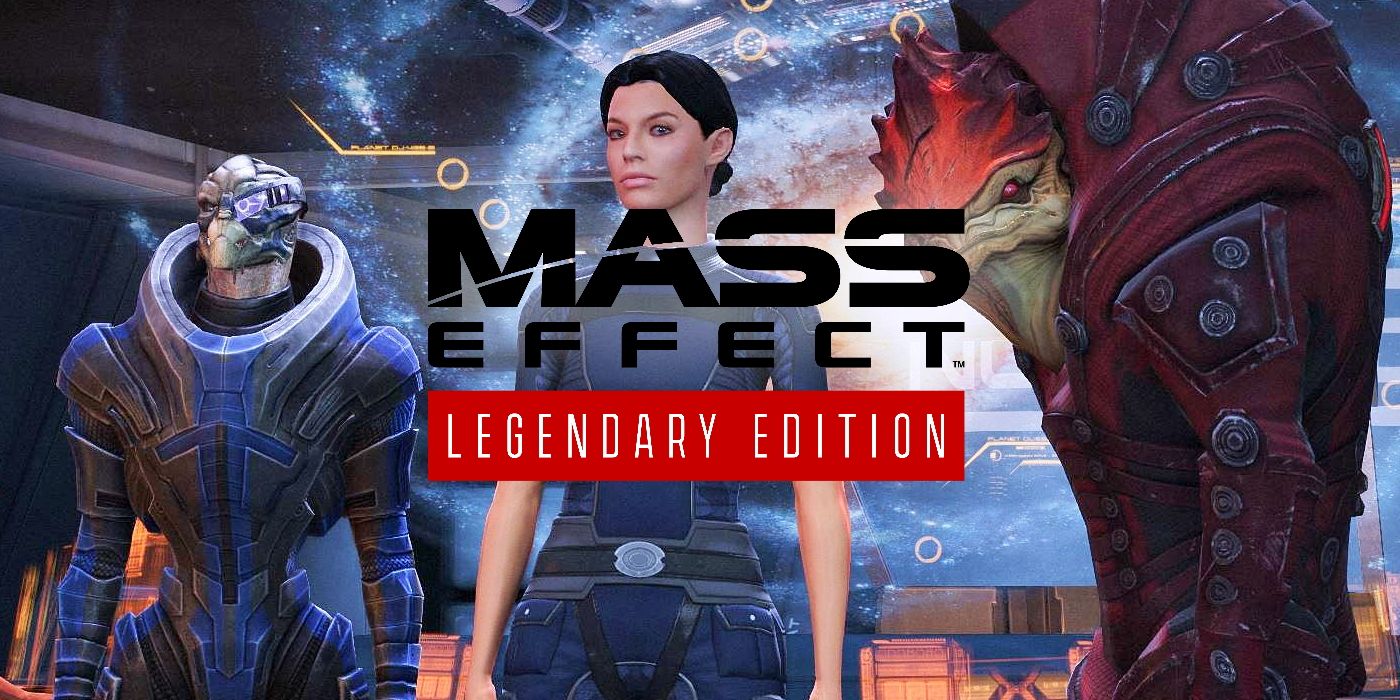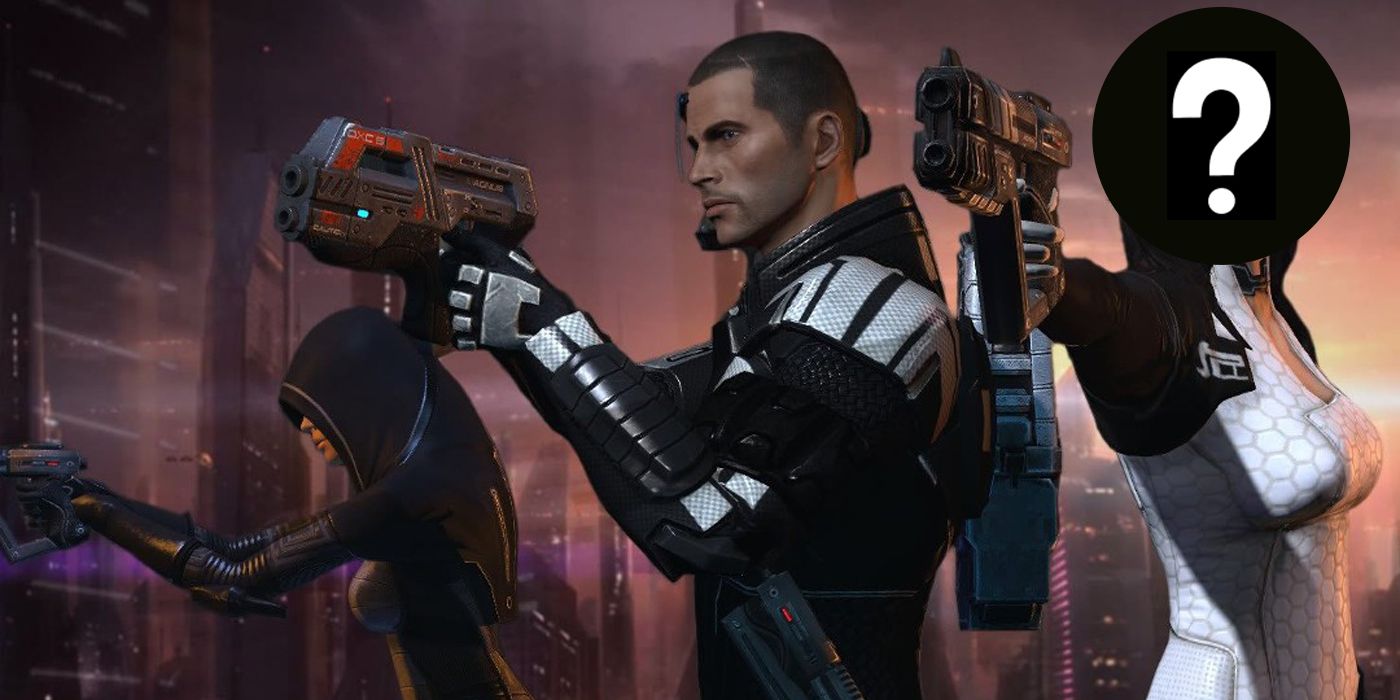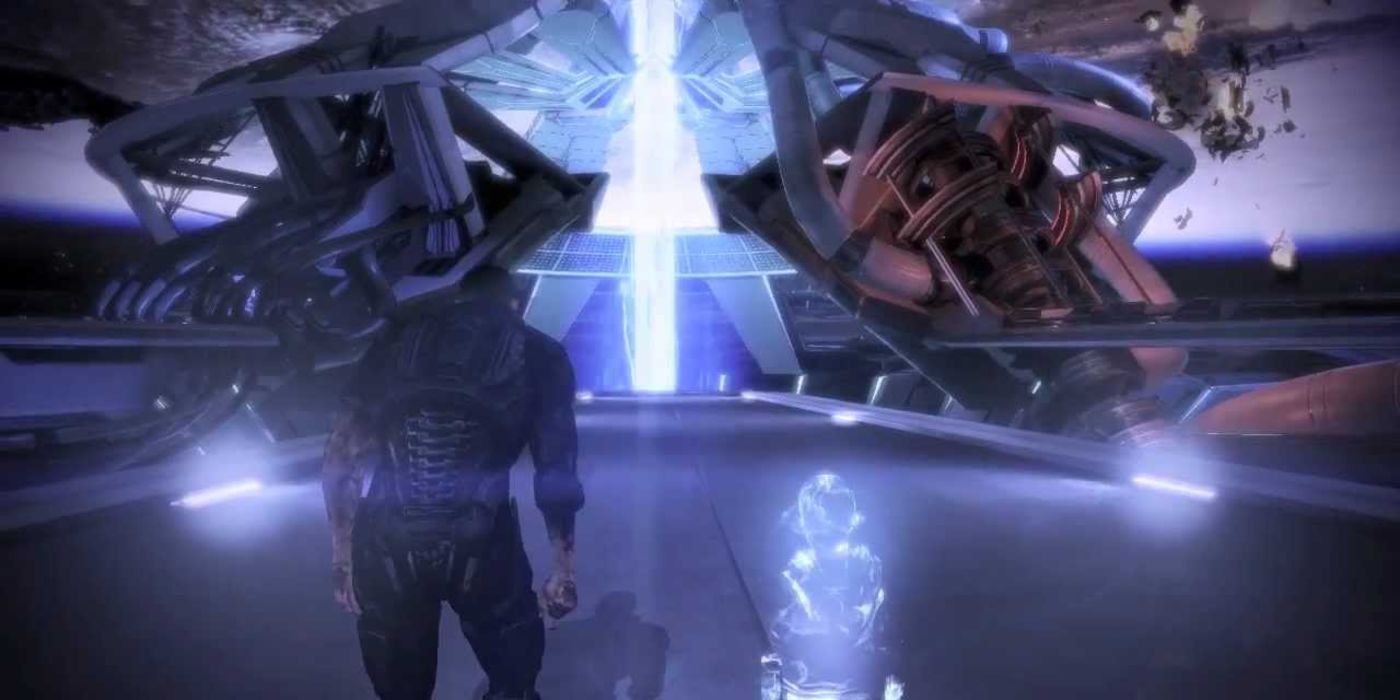
Mass Effect: Legendary Edition is the remaster many fans were hoping for. Familiar faces return with stunning new textures and lighting upgrades, quality-of-life changes help create more consistency between the three games, and fans get to relive the original trilogy now with the knowledge that Shepard's story may not truly be over with a new Mass Effect game on the way.
However, Mass Effect: Legendary Edition still can't overcome the original Mass Effect trilogy's biggest behind-the-scenes flaw. Here's a breakdown of some of the developers talking about how the trilogy's story was planned, and some of the reasons that led to flaws that even the Legendary Edition couldn't hope to fix.
RELATED: Mass Effect 2: Where to Find the Security Terminals on Illium

The general consensus among Mass Effect fans is that Mass Effect 3 is the weaker game in the trilogy, while opinions on the series' best installment generally err towards Mass Effect 2. Mass Effect 2 got to reunite the player with old friends while building up to an extremely memorable suicide mission for the finale. Mass Effect 3's ending was infamous on launch, with far fewer possible endings than the second game. However, Mass Effect 2 is in-part responsible for many of Mass Effect 3's most glaring problems.
While there were broad ideas of the arc of the Mass Effect trilogy, BioWare did not decide on some fundamental pieces of the puzzle until very late in the game. In an interview with Eurogamer, Drew Karpyshyn, lead writer of Mass Effect 1 and 2, discussed how Mass Effect 2 was written with several potential answers to one key question in mind: why do the Reapers want to wipe out organic life every 50,000 years?
"Maybe the Reapers kept wiping out organic life because organics keep evolving to the state where they would use biotics and dark energy and that caused an entropic effect that would hasted the end of the universe," said Karpyshyn, discussing Mass Effect 2's dropped Dark Energy plotline, hinted at in Tali's recruitment mission.
"Maybe there's an inevitable descent into the opposite of the Big Bang (the Big Crunch) and the Reapers realize that the only way they can stop it is by using biotics, but since they can't use biotics they have to keep rebuilding society as they try and find the perfect group to use biotics for this purpose," continued Karpyshyn. He described the Dark Energy plotline as "very vague and not fleshed out," and ultimately it would be abandoned between Mass Effect 2 and Mass Effect 3.

In the end, it was revealed that the Reapers had been created by an AI known as the Intelligence, created by an ancient race of cuttlefish-like aliens known as the Leviathans. In typical AI-gone-rogue fashion, the Intelligence took its prime directive to ensure the continuation of life in the galaxy to extreme logical conclusions. In order to stop synthetics from ever being able to fully wipe out galactic life, ironically it had to routinely destroy every space-faring civilization capable of creating such synthetics.
Though the execution of Mass Effect 3's ending is infamous and has undergone revisions since the game's retail release, the idea of the Intelligence isn't necessarily a bad one. The real problem, as Drew Karpyshyn's comments indicate, is that BioWare didn't have a plan for why the Reapers existed or what their true motivations were until after the story of the second game was set in stone.
RELATED: Every LGBTQ Romance in Mass Effect: Legendary Edition

One of the reasons Mass Effect has so many alternate theories interpreting the ending - from some fans who speculate that Dark Matter could still have played a role to the far more common Indoctrination Theory - is that the original trilogy was experimenting with different potential plot-threads which were then abandoned when the real ending was decided upon. A good ending should feel surprising but necessary, as if the stars align and every piece of evidence so far suddenly falls into place. That's certainly easier said than done, but it's also practically impossible to achieve without there having been an ending in sight to hint at throughout Mass Effect 1 and 2.
A similar lack of foresight can be seen with one of Mass Effect's best moments, the suicide mission. Earlier this year Mass Effect 3's lead writer Mac Walters talked to GameStop about the suicide mission while discussing some of the characters that were cut from Mass Effect 2. "A suicide mission with 10 or 12 of your favorite characters is creating just the most brutal future world for ourselves in Mass Effect 3, because now you've got all of these permutations that we're gonna have to deal with. And we'd all just laugh and say that's for our future selves to worry about."
Mass Effect 2's ending was incredible when the game first released, in part because it raised the question of just how BioWare would deal with so many different possibilities in the third game. In most cases, however, the suicide mission's outcomes don't radically alter the plot of Mass Effect 3. Instead, dead characters are mostly replaced by rough stand-ins who can fulfill similar roles. If Mordin is dead, for example, he is replaced by another Salarian scientist called Padok Wiks. This patched the holes and kept things on-track, but ultimately fans had to save everyone in ME2 to get the most satisfying and character-driven story.
Mass Effect Legendary Edition is a testament to how much fans still love the original Mass Effect trilogy, for all its flaws. The Legendary Edition wouldn't have been able to fundamentally change the story of the trilogy at this point without causing uproar, and there isn't much to suggest that the alternate endings BioWare toyed with would have been received any better than Mass Effect 3's retail ending. However, the lack of overall planning when it came to the Reapers' motives throughout the trilogy, and the lack of foresight when it came to things like replacing Mass Effect 2's dead squad members, can still be felt in the remaster. No story is perfect, but as BioWare embarks on a new chapter in the Mass Effect series, hopefully its future is more clearly charted.
Mass Effect: Legendary Edition is available now for PC, PS4, PS5, Xbox One, and Xbox Series X/S.
MORE: Mass Effect: Legendary Edition Mod Enables Console Commands

